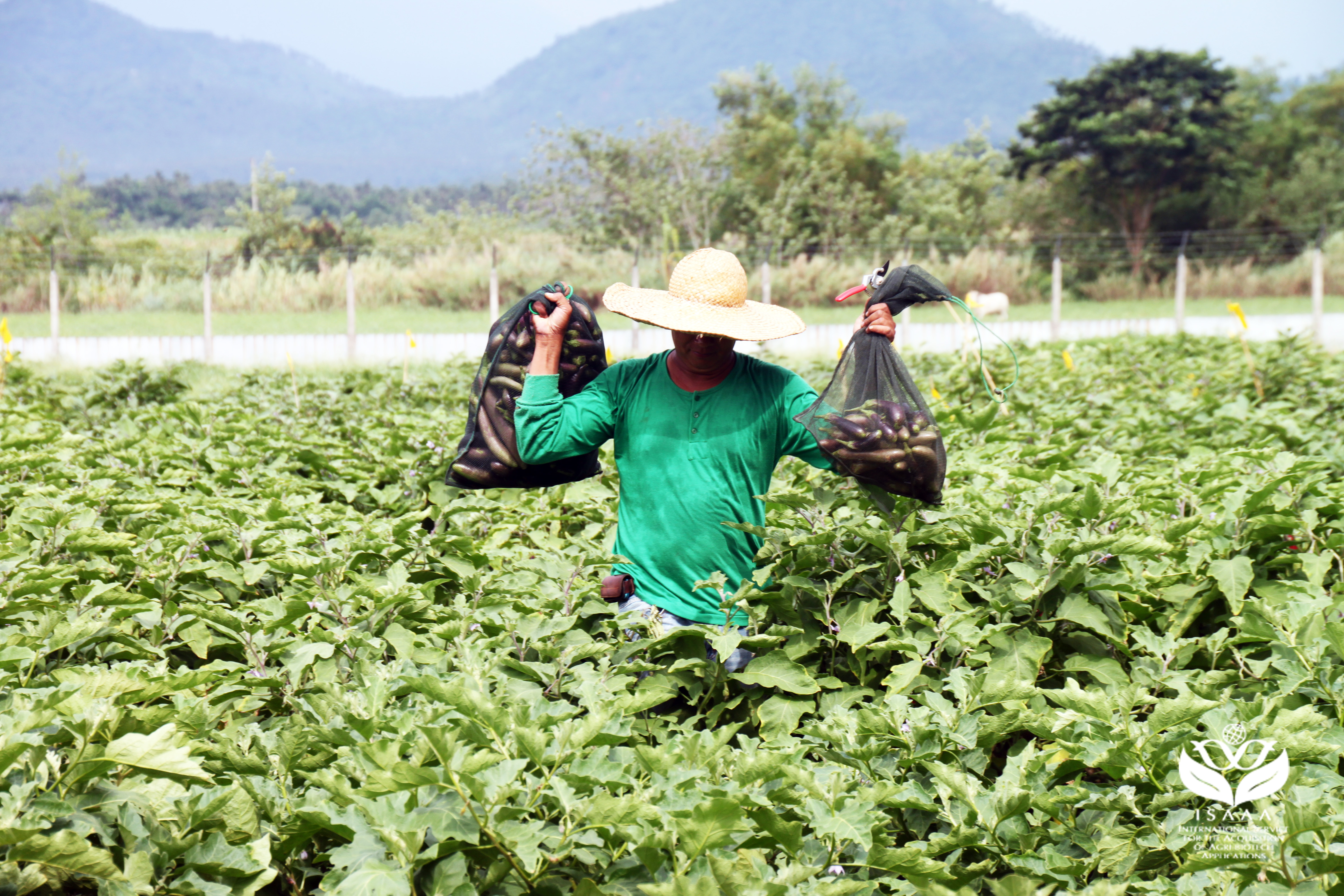Philippines Approves Bt Eggplant for Direct Use as Food, Feed, or for Processing
| |

07/23/2021, Manila, Philippines — After rigorous biosafety assessment pursuant to the DOST-DA-DENR-DOH-DILG Joint Department Circular (JDC) No. 1, Series of 2016, the Philippine Department of Agriculture-Bureau of Plant Industry (DA-BPI) has approved Bt eggplant event ‘EE-1’ for direct use as food, feed, or for processing (FFP) and issued Biosafety Permit No. 21-078FFP to the University of the Philippines Los Baños (UPLB). Bt eggplant, locally called Bt talong, has been found to be as safe as a conventional eggplant, and can substitute for its traditional counterpart, according to the DA-BPI approval.
Bt eggplant contains a natural protein from the soil bacterium Bacillus thuringiensis which makes it resistant to eggplant fruit and shoot borer (EFSB), the most destructive pest of eggplant. The Bt protein affects EFSB worm only and is safe for humans, farm animals, and non-target insects. "Bt eggplant is safe as it only targets EFSB. It is safe for humans, animals, and non-target insects," explains Dr. Lourdes D. Taylo, study leader of the Bt eggplant project from UPLB.
The FFP approval of Bt eggplant is the latest milestone in the biosafety regulatory process in the Philippines. To complete the biosafety regulatory process, Bt eggplant will need commercial propagation approval for environmental safety assessment before it can be made available to the public.
Ex-ante impact assessments of Bt eggplant adoption revealed that the commercialization of Bt eggplant will increase marketable yield by 192% and reduce pesticide application per hectare by 48%. When it is approved for commercial release, both the seeds of Bt eggplant open-pollinated and hybrid varieties will be made available to Filipino farmers.
The Philippines joins Bangladesh as the only two countries that have certified the safety of Bt eggplant. Bangladesh was the first country to plant Bt eggplant in 2014. From 2014 to 2019, a total of 91,270 smallholder farmers in Bangladesh have planted Bt eggplant.
For more details about Bt eggplant, visit the Bt Eggplant Resource page.
| Newer Post | Archive | Older Post |
Science Speaks is ISAAA Inc.'s official blog. Weekly blog articles, authored by ISAAA writers, partners, and invited contributors, aim to help share, disseminate, and promote scientific knowledge and its vital role in achieving global agricultural sustainability and development. Your support to Science Speaks will help us achieve this goal. You can help us by donating as little as $10.

